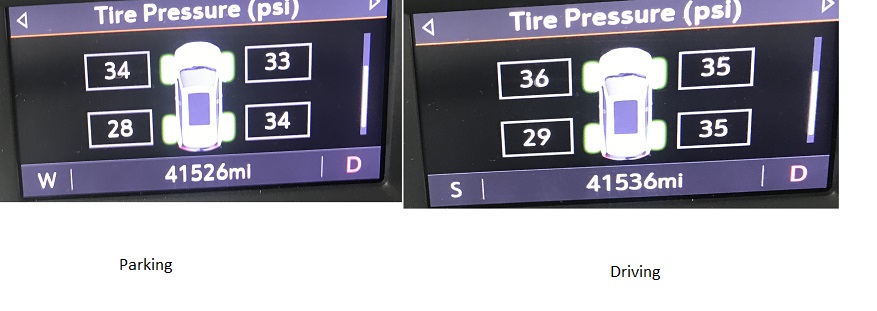I just noticed this whenever I park the car for a while, the tire pressure goes to a lower value on all tires, and whenever I start driving, it goes higher.
The difference is not so big, but it is considerable, and should not be caused by measurement error. Whenever I park the car after driving, the values go back to the lower ones, and whenever I start driving again they go up and stay there until the car is parked for a while.
The answer should be simple, by heating up the tire because of friction while driving, however, the pressure does only raise a little, however fast or however long I drive. Should the pressure not rise when I drive faster?
Why is the pressure independent of the driving speed?
The question is, why is tire pressure lower when parking and higher while driving(and not rise more when driving faster)?

